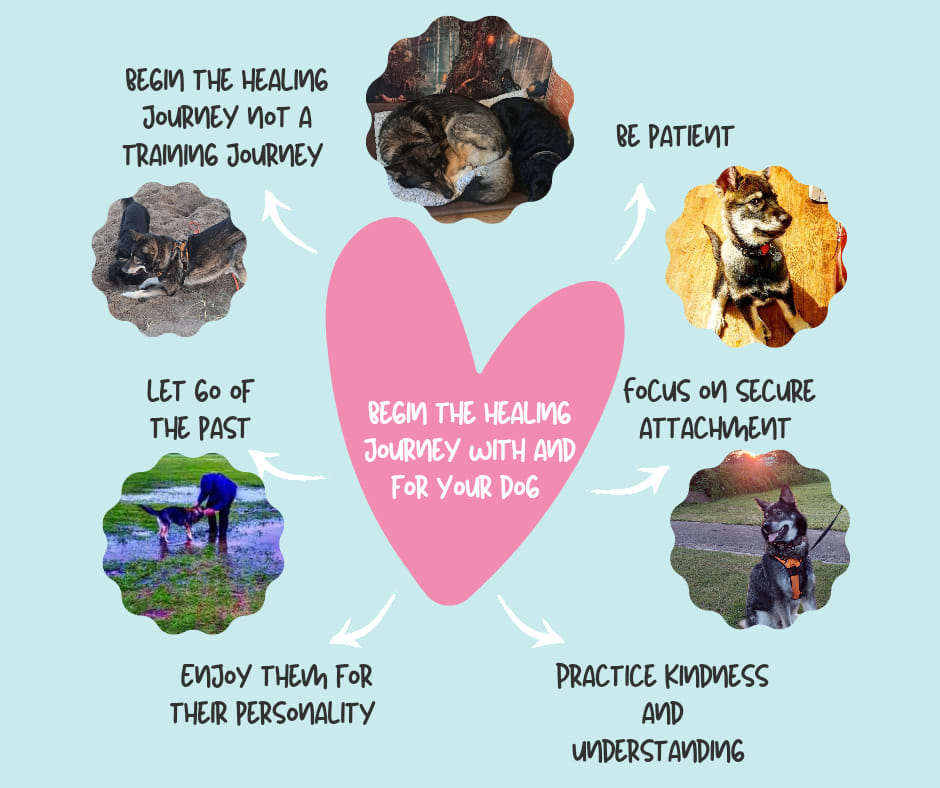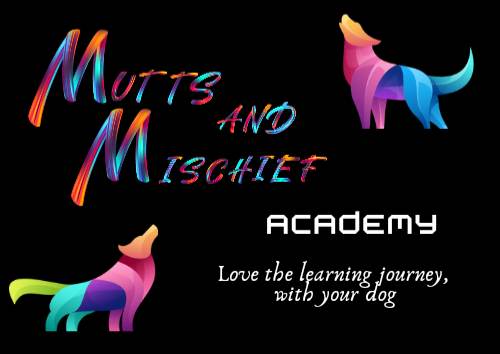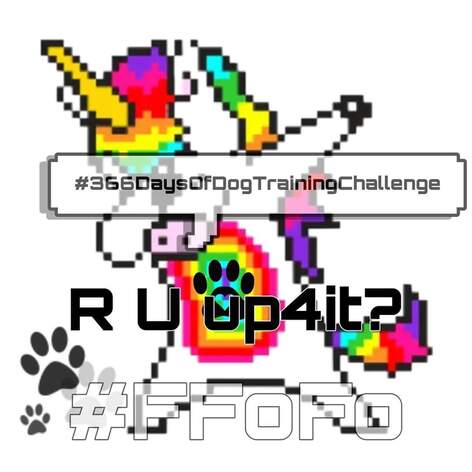|
Trauma in Dogs
Trauma in dogs refers to a set of psychological and behavioural responses that a dog may exhibit after experiencing a severely distressing or disturbing event, situation, or circumstance. These events could include physical or emotional abuse, a traumatic injury, neglect, abandonment, or other forms of violent or destructive behaviour. Some common signs of trauma in dogs include anxiety, fear, aggression, avoidance, hyper-arousal, and hypervigilance. A dog who has experienced trauma may also exhibit physical symptoms, such as weight loss, hair loss, and general malaise. It's important to note that every dog experiences trauma differently and may exhibit a unique combination of symptoms. If you suspect that your dog has experienced trauma, it's important to seek help from a veterinarian or a qualified behaviourist, who can provide guidance on how to manage your dog's symptoms and work towards a positive outcome. Trauma can manifest itself in many different ways and dogs as individuals will not necessarily show the same behaviours. 1. Aggressive behaviour towards people, animals, or objects: Dogs with trauma may become reactive and aggressive in situations that trigger their trauma response. This may include growling, barking, and biting. [1] 2. Avoidance behavior: Dogs may avoid situations or places that remind them of their traumatic experience. They may try to escape, hide, or cower away from these triggers. [2] 3. Hypervigilance: Dogs with trauma may become hyper-vigilant, constantly on alert for any signs of danger. They may startle easily or be easily spooked by noises or sudden movements. [3] 4. Separation anxiety: Traumatized dogs may experience separation anxiety when separated from their owner or caregiver. This can manifest as excessive barking, destructive behavior, and other anxious behaviors. [4] 5. Physical symptoms: Some dogs may develop physical symptoms of trauma, such as loss of appetite, weight loss, hair loss, and general malaise. [5] It's very easy to quickly identify problem behaviours in dogs and behaviours deemed as unacceptable by guardians and labelling them as reactive. Which is very generic and a label that can be very unhelpful. When a human endures a trauma other humans are quick to show empathy and support, when a dog endures a trauma it may not be recognised as a trauma and the focus is on the dog needing to be fixed. When we evaluate the parenting style the dog guardian uses we can then begin to break down and evaluate what may be happening and why the dog feels insecure and is exhibiting the behaviours. This will be another post in itself. The dog behaviour industry is shifting for the better and professionals and guardians alike are beginning to get on board with this approach and understanding, but we still need to do more to identify trauma in dogs to focus on secure attachments and healing our dogs as opposed to "fixing them", healing our dogs means we can identify the cause and heal the pain and the fear, "fixing" a dog means asking the dog to mask that fear and anxiety to make the humans life easier and the dog will inevitably become more unwell in not being able to heal which can eventually manifest physically whilst struggling with internal unwellness. Let's not try to fix dogs and let's heal them instead! References: 1. American Society for the Prevention of Cruelty to Animals (ASPCA). (n.d.). Dog Behavior: Aggression. Retrieved from https://www.aspca.org/.../common-dog.../aggression-dogs 2. PetMD. (2018, June 18). PTSD in Dogs: How to Help Your Dog Overcome Trauma. Retrieved from https://www.petmd.com/.../behavioral/c_dg_PTSD_in_dogs 3. American Kennel Club (AKC). (n.d.). Dog PTSD: Recognizing and Treating Canine Post Traumatic Stress Disorder. Retrieved from https://www.akc.org/expert-advice/health/dog-ptsd/ 4. VetStreet. (2015, April 24). Separation Anxiety in Dogs. Retrieved from https://www.vetstreet.com/care/separation-anxiety-in-dogs 5. Association of Professional Dog Trainers (APDT). (n.d.). Canine Trauma: Recognizing and Treating Post Traumatic Stress Disorder in Dogs. Retrieved from https://apdt.com/.../canine-trauma-recognizing-and.../
0 Comments
Leave a Reply. |
BlogFor Mutts & Mischief If you enjoy my blogs and
would like to support my work, you can support me by buying me a Coffee! Archives
March 2024
|
Or are you looking for support and would like to get to know us better?
If the answer is yes then click the image below to join my free facebook group. What is Mutts & Mischief Community?
So it is what it says on the tin! Its a community that is international of Clients and Colleagues with the most supportive and friendly people on the planet. Dog Trainers and Behaviourists from all over the world!
Why did I set up such a mammoth group?
I wanted to have a group exclusively for Clients. For support and to meet uo and build on friendships from Classes or One to Ones. I want Clients to see you are not alone with your Dog and the problem you maybe having that you are not the first and won't be the last! I wanted a safe place where Clients could trade stories good and bad in one place for free!
I also wanted a safe place for the Trainers and Behaviourists I mentor within Social Media Platforms.
Why do this for free?
Because when I say I offer an holistic service I really do. It isn't about the money it is about you and your dogs. You and your dogs are all that matter.
So I wanted to encourage people to do homework and build better quality relationships with their dogs. So 3 years ago I had a mad idea and set up the 100 days of dog training challenge. Once a day people would spend 5 minutes plus training their dog. Recording it and uploading their video onto the Community. Every participant recieved a Certificate.
What I didn't count on was how many Professionals wanted to join and how fast word would spread. So this year 2020 I set up a 366 days of dog training challenge.
We have Clients in America, Greece, Norway, Denmark and Spain. We have Trainers from Greece, Norway, Isle of Wight, America and many more Countries. As well as dog trainers and trainee behaviourists: I mentor all over the world.
So again yes this group is free. It is still primarily for clients and for people to get to know me but we also have the challenge running. Again for free. So if you want to join click the image below to be taken to the group directly. See you there!
So it is what it says on the tin! Its a community that is international of Clients and Colleagues with the most supportive and friendly people on the planet. Dog Trainers and Behaviourists from all over the world!
Why did I set up such a mammoth group?
I wanted to have a group exclusively for Clients. For support and to meet uo and build on friendships from Classes or One to Ones. I want Clients to see you are not alone with your Dog and the problem you maybe having that you are not the first and won't be the last! I wanted a safe place where Clients could trade stories good and bad in one place for free!
I also wanted a safe place for the Trainers and Behaviourists I mentor within Social Media Platforms.
Why do this for free?
Because when I say I offer an holistic service I really do. It isn't about the money it is about you and your dogs. You and your dogs are all that matter.
So I wanted to encourage people to do homework and build better quality relationships with their dogs. So 3 years ago I had a mad idea and set up the 100 days of dog training challenge. Once a day people would spend 5 minutes plus training their dog. Recording it and uploading their video onto the Community. Every participant recieved a Certificate.
What I didn't count on was how many Professionals wanted to join and how fast word would spread. So this year 2020 I set up a 366 days of dog training challenge.
We have Clients in America, Greece, Norway, Denmark and Spain. We have Trainers from Greece, Norway, Isle of Wight, America and many more Countries. As well as dog trainers and trainee behaviourists: I mentor all over the world.
So again yes this group is free. It is still primarily for clients and for people to get to know me but we also have the challenge running. Again for free. So if you want to join click the image below to be taken to the group directly. See you there!
Proudly powered by Weebly



